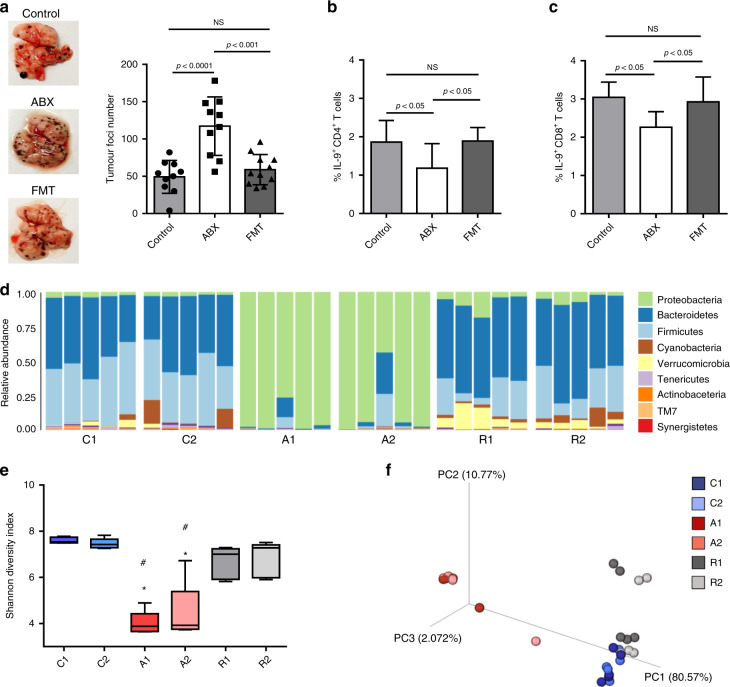Fig. 4. Faecal microbiota transplant restores lung-infiltrating IL-9-producing T cells and protects antibiotic-treated mice from tumour development.
C57BL/6 mice received an antibiotic cocktail twice a day by gavage for 4 weeks (ABX), or were left untreated (control). After 4 weeks of treatment, a group of ABX-treated mice received faecal microbiota transplant (FMT), while the other group was kept under treatment. All mice were intravenously injected with 5 × 104 B16F10 cells, and tumour foci number in the lungs was determined 14 days after injection (a). Lungs were then digested, and cells stimulated with PMA (50 ng/ml), ionomycin (500 ng/ml) and Brefeldin A (5 μg/ml) for 4 h at 37 °C and 5% CO2. The frequency of IL-9-producing CD4 + (b) and CD8 + (c) T cells was evaluated by flow cytometry. Metagenomic analysis of the gut microbiota was performed in faecal samples collected at the day of and 2 weeks after injection of B16F10 cells (d). Microbiota alpha-diversity was determined by the Shannon index (e). Principal coordinate analysis (PCoA) based on weighted Unifrac metric of faecal microbiota among all samples was also performed (f). Data are shown as mean ± SD. One-way ANOVA followed by Tukey’s multiple-comparison test and Kruskal–Wallis test was used for statistical analysis. Control animals before (C1) and 15 days after tumour injection (C2). ABX-treated animals before (A1) and 15 days after tumour injection (A2). Microbiota-reconstituted animals before (R1) and 15 days after tumour injection (R2). *p = 0.009 compared with Groups 1 and 2. #p = 0.009 compared with Groups 5 and 6.

